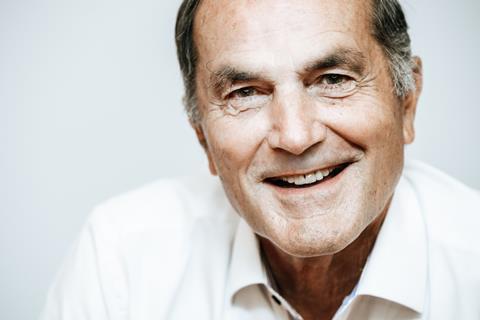
The inaugural World AI Film Festival kicks off in Nice on April 11 with the twin aim of awarding video creations and screenplays made using artificial intelligence technology and bringing together key figures from the film and AI tech worlds to discuss how to creatively and ethically fuse the two industries.
The festival is the brainchild of former Apple Worldwide COO Marco Landi who co-founded the France-based EuropIA Institute, which is dedicated to raising awareness about the challenges of artificial intelligence.
“Our aim is to show how AI is not destroying creativity – on the contrary, it gives more opportunity to the imagination,” Landi told Screen.
But, he added, “We need to find a way to keep this exciting technology under control, to make sure this powerful tool is used in a positive way for cinema, and also for music, writing, production – everything that is involved in making a film.”
Landi said organisers have received projects from 65 countries, sent by a mix of students, filmmakers and experts in AI using the technology to create scripts and films.
The festival has also managed to woo heavyweight partners including Arte, TF1, Canal+, Pathé Films and Banijay Entertainment – the latter two both sponsoring festival awards. Genario, an artificial intelligence platform dedicated to screenwriting, is another festival partner and awards sponsor.
French filmmaker Claude Lelouch will chair the two-day event, while Emilia Perez screenwriter Thomas Bidegain will preside over a jury that includes Banijay France CEO Alexia Laroche-Joubert and actress-filmmaker Julie Gayet.
The festival’s awards ceremony will be held on Friday evening (April 11). On April 12, film industry professionals will convene with AI experts for a series of roundtables and debates focused on topics including the artistic and ethical limits of AI technology, financing cinema in the age of AI, and copyright.
SRF, the French directors’ guild, will also bring together Bidegain with fellow filmmakers Bertrand Bonello, Axelle Ropert and Thomas Coispel for a discussion about how they see AI affecting their work.
Bidegain told Screen he has not used AI technology to date but is heading up the jury “out of curiosity” and as a way to “discover the possibilities” of AI in the writing and filmmaking processes.
“I haven’t found it to be of any interest to my work so far, so I would like to see how it will concretely affect our profession,” he said. “AI exists so now the question we are asking is, ‘How will it be used in cinema?’ Cinema demands creativity, so where is the place of AI in that?
“I’m in the business of auteur cinema – of originality, inventiveness, creativity and a signature that are important,” added Bidegain, who said the key question likely to occupy industry minds attending the festival this weekend is: “Will there be the same passion among audiences if they know something was created by a robot?”

























No comments yet